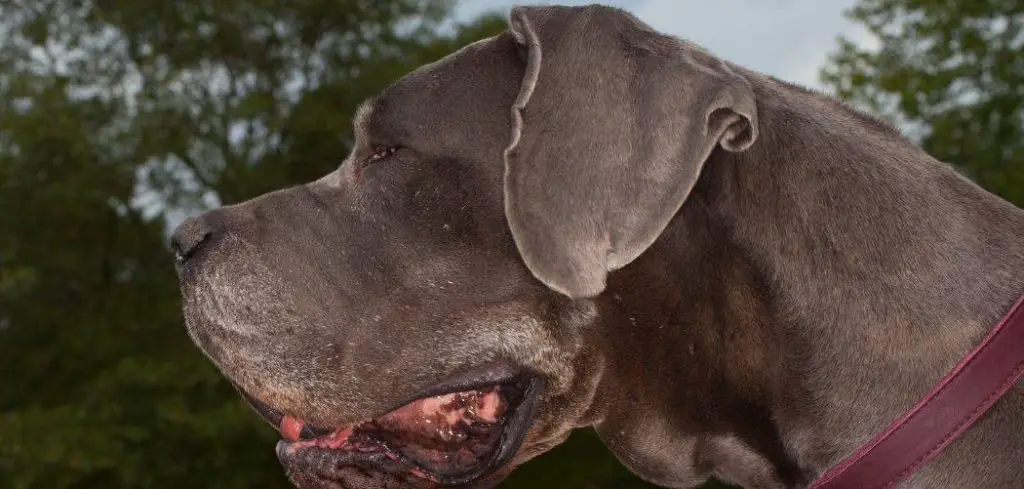When your dog keeps vomiting clear fluid or water and refuses to eat, it can be distressing. These symptoms may signal anything from mild digestive upset to a life-threatening emergency.
We outline the common reasons why your dog keeps throwing up water and not eating, what you can do at home, and when to seek veterinary help.
Dog Keeps Throwing Up Water and Not Eating — Why It Happens
A dog that vomits clear liquid and refuses food may be dealing with gastrointestinal irritation, dehydration, pancreatitis, or a blockage. It could also be a sign of kidney disease, toxin exposure, or even something as simple as drinking water too quickly.
Because vomiting can lead to rapid fluid loss, especially if your dog isn’t eating or drinking properly, it’s essential to evaluate the underlying cause quickly.

Dog Keeps Throwing Up Water and Not Eating: Common Causes
Gastritis
Gastritis, or inflammation of the stomach lining, is a frequent cause of vomiting in dogs.
It often results from eating something irritating, such as garbage, spoiled food, or table scraps.
When the stomach is upset, dogs may vomit clear fluid or bile, especially on an empty stomach.
Refusing to eat is common, and your dog may seem lethargic or uncomfortable.
Mild cases may pass with rest, but if symptoms continue beyond a day, veterinary attention is needed.
Read more: Dog Vomiting and Not Eating (Why it happens)
Pancreatitis
Pancreatitis is the inflammation of the pancreas and can lead to vomiting, loss of appetite, and abdominal pain.
Dogs with pancreatitis may vomit water because their stomach can’t tolerate even liquids. They often lie around, seem depressed, or adopt a praying position due to pain.
This condition is often triggered by fatty foods and can become serious if untreated. Supportive care at the vet is essential in most cases.
Intestinal Blockage
If your dog swallowed a toy, bone fragment, or other object, it could cause a blockage in the intestines.
Vomiting water (and eventually food) without eating is a classic sign.
Your dog might also strain to defecate or produce very small amounts of stool.
Blockages require emergency veterinary intervention, often surgery, to prevent rupture and infection.
Kidney Disease
Chronic or acute kidney issues can lead to nausea, vomiting, and a lack of interest in food.
Dogs with kidney problems may also urinate more or less frequently, become lethargic, or develop bad breath.
The vomiting may appear watery or frothy, and they might refuse to eat or even drink.
A blood test can confirm kidney dysfunction, and early treatment can slow progression.
Drinking Water Too Quickly
In some cases, dogs that gulp water too fast—especially after play or walks—may vomit it up shortly after.
This behavior can lead to repetitive vomiting and decreased interest in food due to stomach discomfort.
If this is the only symptom and your dog otherwise appears well, slowing down water intake may resolve the issue.
But continued vomiting and refusal to eat signals something more serious.
What to Do If Your Dog Is Throwing Up Water and Not Eating
Start by removing food and water for a few hours to allow the stomach to settle.
After a rest period, offer small sips of water or ice chips to avoid dehydration. Avoid feeding any solids for 8–12 hours.
If vomiting subsides, try a bland diet like boiled chicken and rice in small amounts.
Monitor your dog’s behavior, hydration status (gum moisture, skin elasticity), and stool.
If they vomit again, continue refusing food, or show signs of pain or weakness, contact your vet promptly.
When to Call or Visit Your Vet
Seek immediate veterinary care if:
Your dog is vomiting multiple times in a day.
There is blood in the vomit or stool.
They are lethargic, dehydrated, or collapse.
They haven’t eaten for more than 24 hours.
There is a history of eating foreign objects, garbage, or toxins.
Your dog is a puppy, senior, or has a pre-existing condition like diabetes or kidney disease.
Early diagnosis is key to a full recovery.
Read more: Dog Keeps Stretching and Not Eating (Here’s why)
Key Takeaway
Vomiting water and refusing food is never something to ignore in your dog.
It could be something mild—or something severe like pancreatitis or a blockage. Rest the stomach, monitor symptoms, and when in doubt, call your vet.
Prompt care can make all the difference in keeping your pup safe and comfortable.
